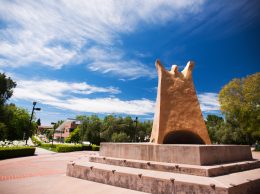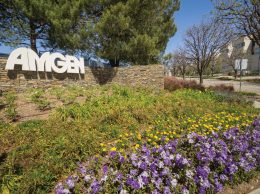
Nanette Scarpellini Metz
By Nanette Scarpellini Metz
Following the recent economic crisis, MBA students and their corporate counterpart — the CEO — have been vilified for their short-sighted views based more on shareholders and their personal golden parachutes than stakeholders and even their own employees.
However, the new era of graduate education is breaking the mold. While many universities maintain the status quo with traditional lecture classes, a few institutions are incorporating diverse learning experiences and community engagement that can cultivate a better sense of corporate responsibility. This allows students to test out their education in a meaningful but controlled situation.
They gain valuable experience working as consultants for area businesses and nonprofit organizations in need of fresh perspectives and strong business research grounding.
For example, during the 2016-2017 school year, California Lutheran University MBA students joined forces with the Veterans of Foreign Wars leaders at Post 10049 in Simi Valley for a project that focused on a public good. After nearly 50 years of service, the post was in danger of closing its doors and ending its mission to serve veterans, the military and the community. Many difficulties threatened its existence. These students took on the challenge as part of the newly created MBA project course I taught that completes their degree.
The students, with no prior familiarity with the organization, were tasked with providing a well-structured business plan to help revive and sustain this meaningful nonprofit organization. They had to consider the extremely limited budget and the ability of the organization members to implement the plan. There was no budget for hiring highly skilled web designers or builders.
I was heartened by the students’ enthusiasm. They were thrilled to get out into the world and do something with all the knowledge they had acquired. They saw it as a great chance to make a difference.
There was no place for personal glory in this project. It provided an ideal way to foster team spirit. There was simply too much work for one person. Teamwork is a dreaded component of academic experience, but a meaningful one. The workforce has an increased emphasis on teamwork and cross-functionality so there is no fighting it. While resistant at first, the students realized that they needed to work together in order to produce a useful outcome for the client.
Accountability was key. The added responsibility of having a real-life organization depending on their work definitely increased the students’ commitment to putting together a good project. Typically, class papers are filed in the trash once graded. After the work is done, there isn’t much point to them. That’s not the case for a team trying to help a nonprofit service organization reinvent itself. Actual people depended on the work, thus increasing the value of it exponentially.
In the nine months since the students’ final plan was presented, the VFW post is considerably more secure and the rehabilitation of the facilities is in progress. Due to the increased attention, the VFW was able to partner with community members such as Habitat for Humanity and The Home Depot to refurbish the headquarters both inside and out.
The students coaxed the post more fully into the digital age. The VFW updated its Facebook presence and started a GoFundMe page to provide an easier way for outside donors to see the work of the post and support it through donations.
Post Commander Wayne Wright said that none of the accomplishments would have come about without the assistance of the Cal Lutheran students and faculty.
The students learned many valuable lessons. The project highlighted the potential of partnerships and new perspectives. This was the first time many of them had to prioritize problems and develop a workable solution with action steps.
But the most important takeaway could be that there is more than one way to profit. Making a difference in the community counts.
This experience working toward the long-term viability of a nonprofit organization dedicated to improving people’s lives will serve the students and the world well now that they have graduated and set out to launch their careers.
• Nanette Scarpellini Metz is an adjunct faculty member in the California Lutheran University School of Management.






 Print
Print Email
Email

















